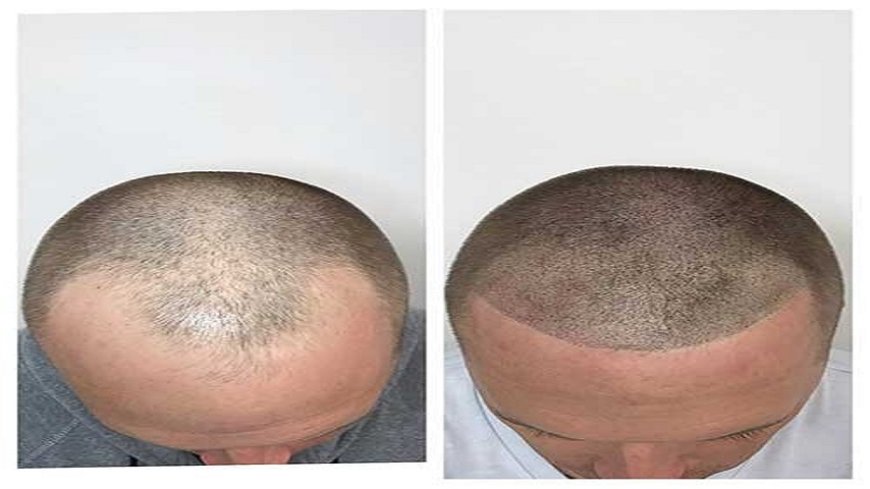Roots Resurgence: Non-Surgical Options for Combatting Hair Thinning
In a world where appearance plays a significant role, hair health is often a concern for many individuals. Hair thinning, a common issue faced by both men and women

In a world where appearance plays a significant role, hair health is often a concern for many individuals. Hair thinning, a common issue faced by both men and women, can be a source of distress and impact self-esteem. While surgical options like hair transplants have long been considered the go-to solution, a growing number of non-surgical alternatives are gaining popularity. This shift is driven by advancements in technology and a desire for less invasive approaches to address the root causes of hair thinning. In this comprehensive exploration, we will delve into the various non-surgical options available for combatting hair thinning and fostering roots resurgence.
Understanding the Causes of Hair Thinning
Before exploring non-surgical solutions, it is crucial to understand the factors contributing to hair thinning. Genetics, hormonal changes, nutritional deficiencies, stress, and certain medical conditions can all play a role in hair loss. Non-surgical options aim to target these underlying causes, promoting a healthier environment for hair growth.
Non-Surgical Solutions for Hair Thinning
- Topical Treatments
One of the most accessible and widely used non-surgical options for hair thinning is topical treatments. Over-the-counter solutions containing minoxidil, a medication approved by the U.S. Food and Drug Administration (FDA), are commonly used to stimulate hair growth. Minoxidil works by widening blood vessels and opening potassium channels, resulting in improved blood flow to the hair follicles. Regular application is required, and individuals may begin to see visible results after several months of consistent use.
Additionally, topical treatments often include other active ingredients such as finasteride, ketoconazole, and caffeine. These ingredients work in various ways, from blocking the hormone dihydrotestosterone (DHT), known for contributing to hair loss, to promoting a healthier scalp environment.
- Low-Level Laser Therapy (LLLT)
Low-level laser therapy (LLLT) is a non-invasive method that uses red light to stimulate hair follicles, promoting growth and preventing further thinning. Devices like laser combs, helmets, and caps are designed for home use, providing a convenient option for individuals seeking an alternative to in-office treatments.
LLLT is believed to increase blood flow to the scalp and stimulate cellular activity within the hair follicles. While results may vary, some users report noticeable improvements in hair thickness and density after consistent use over several months.
- Platelet-Rich Plasma (PRP) Therapy
Platelet-rich plasma (PRP) therapy is a non-surgical treatment that utilizes the patient's blood to stimulate hair growth. In this procedure, a small amount of the patient's blood is drawn, processed to concentrate the platelets, and then injected into the scalp.
Platelets contain growth factors that are believed to encourage the regeneration of hair follicles and promote a healthier scalp environment. PRP therapy is a minimally invasive option, and while multiple sessions may be needed, it has shown promising results for some individuals in improving hair thickness and reducing hair loss.
- Nutritional Supplements
Nutritional deficiencies can contribute to hair thinning, making dietary supplements a non-surgical approach to address this issue. Supplements containing vitamins, minerals, and essential fatty acids, such as biotin, zinc, and omega-3 fatty acids, aim to provide the body with the nutrients necessary for healthy hair growth.
While it's essential to consult with a healthcare professional before starting any supplement regimen, many individuals find that addressing nutritional gaps can positively impact their hair health over time.
- Hair Growth Shampoos and Conditioners
Specialized shampoos and conditioners formulated to promote hair growth have become increasingly popular in the market. These products often contain a combination of active ingredients, including biotin, caffeine, ketoconazole, and botanical extracts known for their hair-strengthening properties.
While these products may not offer a comprehensive solution on their own, they can be a valuable addition to a holistic approach to hair care, promoting overall scalp health and contributing to the prevention of hair thinning.
- Mesotherapy
Mesotherapy is a non-surgical cosmetic procedure that involves injecting a mixture of vitamins, minerals, and other active ingredients directly into the scalp. The goal is to nourish and rejuvenate the hair follicles, promoting hair growth and preventing further thinning.
While mesotherapy has gained popularity in some regions, its efficacy is still a subject of debate, and more research is needed to establish its long-term benefits and potential side effects.
Conclusion
The quest for a roots resurgence in combating hair thinning has led to the emergence of diverse non-surgical options. From topical treatments and low-level laser therapy to platelet-rich plasma therapy and nutritional supplements, individuals now have a range of choices to address the underlying causes of hair loss.
While non-surgical options offer less invasive alternatives compared to surgical procedures like hair transplants, it's essential to approach these solutions with realistic expectations. Results can vary from person to person, and consistency in use is often key to achieving noticeable improvements.
Ultimately, the decision to pursue non-surgical options for combatting hair thinning should be based on individual preferences, lifestyle, and the advice of healthcare professionals. With ongoing advancements in technology and a growing emphasis on holistic approaches to wellness, the landscape of non-surgical solutions for hair health continues to evolve, providing hope for those seeking to rejuvenate their roots and embrace a fuller, healthier head of hair.
Regain Your Confidence: The Power of Non-Surgical Hair Restoration Techniques
What's Your Reaction?





















